It’s hard to believe that all these people’s “honesty” gene just never woke up, but it appears to be the case.
I am disgusted what this Trungpa guy was up to. I am really seeing the difference between a real lama, and a totally fake one. My lama, Gyatrul Rinpoche, would NEVER have been up to all these shenanigans. He would never have wasted a penny of anyone's money. This is not dharma. This is not Tibetan Buddhism. There are no morals or ethics here.
Shambhala people are really fooling themselves BIGTIME with this idea of “tantra.” Tantra is not turning everything good upside down and making it bad. It’s quite the opposite. It’s making everything bad good. But not just because you said so, but because you wished it from a good place. And it does not mean that everything bad is good. Nothing bad is good, unless you artistically conceive it in a way that has power, that has the ability to catch on and change things for the better. This Illuminati idea that everything bad is really good, just because you have the ego for it, the delusion for it, the machismo for it, the libido for it, is nonsense. You’re going to end up in the nuthouse like Nietzsche.
Trungpa tricked his way to success. Besides having all the support in the world that he wanted to make use of, from the Theosophical Society, from the Mind Control Elite of the world, from the Aquarian Conspiracists, and all the crazy alchemical sex cultists, he simply lied to get where he got. He pretended he had attainments. He pretended he had wisdom. He pretended he had previous lives -- and then threw them in the garbage while pretending he still had them in some magnificent reconciliation of opposites. He pretended not to get drunk. He pretended to care. He put on his Tibetan lama clothes for the Karmapa, and made everyone else dress conservative, and act real proper, and had Diana tell the Karmapa that Trungpa owned every large building in Boulder, after he had draped the Karmapa’s walls in brocade. And with all the limousines and State Department detail, no wonder the Karmapa thought Trungpa was such a huge success in America. He wasn't about to approve a loser. Unless Trungpa had acquired plenty of property and influence, why would the Karmapa want to elevate him. If he was a fucking nobody? Which tells you something about the Karmapa's interest in money as well, as opposed to dharma.
Well, Trungpa lied about most of it. He lied to get his credentials. When is lying good? Especially to your teacher, or someone you love, or to anyone whosoever for any reason at all? Lying keeps people in the dark. Makes them think you are someone you aren't. That's not compassionate.
But Trungpa succeeded in his ruse to get recognition, this proclamation of approval from the Karmapa -- the disgusting arrogance of it all -- which was obviously a big thing for Trungpa, something he worked hard for, and once he had it, he knew he could trade in the future for gifts, cash and rewards of all kinds.
Then he goes to Akong Rinpoche and says, “Give me back my seals; nobody can stop me now!” And "you'll never be as big or important a man as I am, so give me what's mine!" I see a very petty person here, and it's not Akong Tulku.
But he wants more. He wants to stay in the most posh hotel in London to celebrate his "victory". Because he’s going to be rich now! So he goes out and buys a bunch of hand-tailored suits and ties at the most expensive establishments in London, and good things for Diana and Taggie as well. But he wants more. They go to France, because "they had such a good time the last time they went.” But he wants more. Diana wants to go to Vienna, to see the Spanish Dressage. And even more, she wants her lama husband to fulfill her greatest wish in life to study dressage in Vienna with sangha funds. “We’re going to have a Mercedes one day, my lovely, just you watch.”
This display of worldly dharma is astounding.
But still, he doesn’t have anything really to live for. He blew his wad at the second Vajradhatu seminary, and now, like a salmon who has spawned, it’s time to die. He has no desire to live due to compassion for all motherly sentient beings suffering in samsara. If he can’t find a worldly reason to live, then he's finished. But there is one thing that would please him, the spoiled prince: he had a dream that he was a general! But even that’s not enough for him. He wants to be a king and rule a nation!!! NOW THAT WOULD BE SOMETHING TO LIVE FOR!
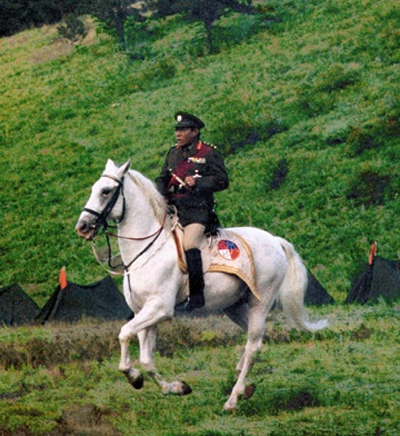
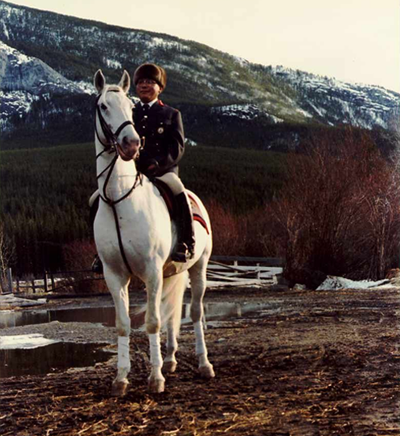
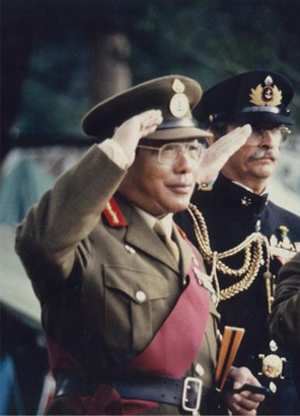
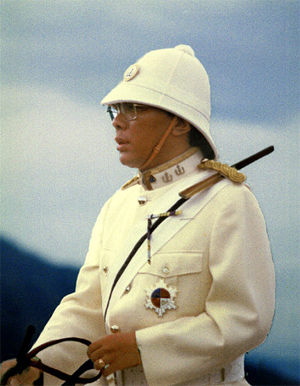
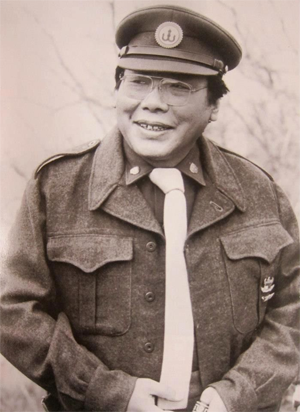
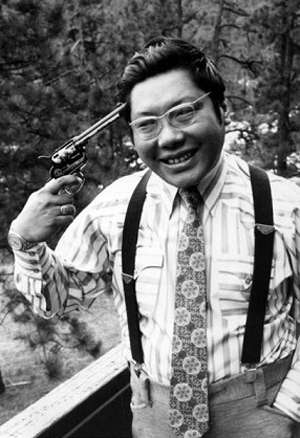
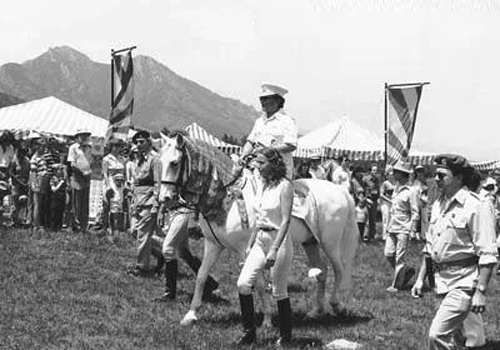
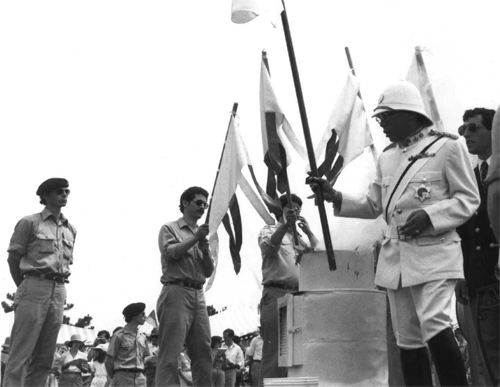
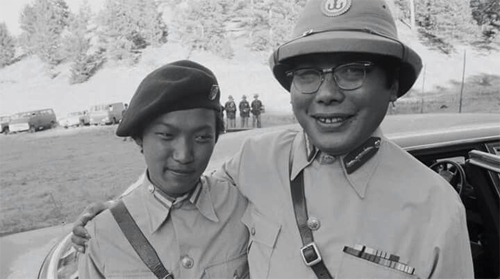
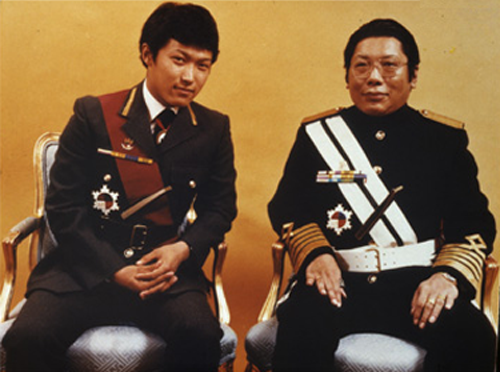
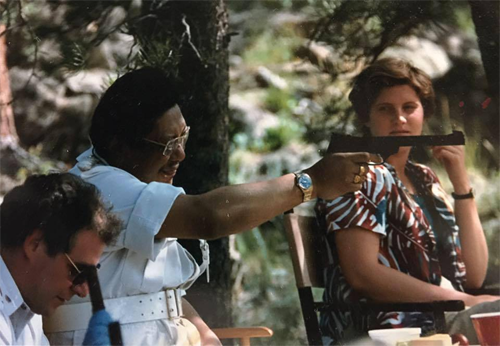
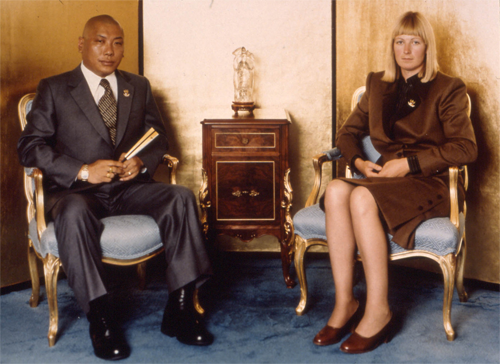
It’s astonishing to contemplate that here we are in America, and these Shambhalians act like the American Revolution never fucking happened. Truly, they are a bunch of traitors. What are they doing playing subjects to a king? What rights do they think they could possibly have in this situation? Hello, that’s why we had a revolution, to get more rights for ourselves. You know, the Western enlightenment that brought us HUMAN rights? The enlightenment that said that giving every human freedom would contribute more good to the whole than any other option, including Communism? But Shambhalians don’t hate Communism, as every good student of Western enlightenment would, knowing how it overturns every concept of democracy. They love it. They want to be Communist Monarchists, the very worst of all worlds.
Well, good luck, fools, trying to get anything for all your money, time and effort during all these years you were members of Shambhala. Really, you should have known better. How could you ignore all the bad that was right in your face? You think that’s the way to make an enlightened society? What’s wrong with you?
You should go do something real. You can start by figuring out what "real" is. Go find the real ground. You know, the dirt the buddha supposedly touched when he declared his enlightenment? Though I'm just sure he never did such an arrogant thing as declare his enlightenment. Enlightenment is for fools. Real life is for heroes.